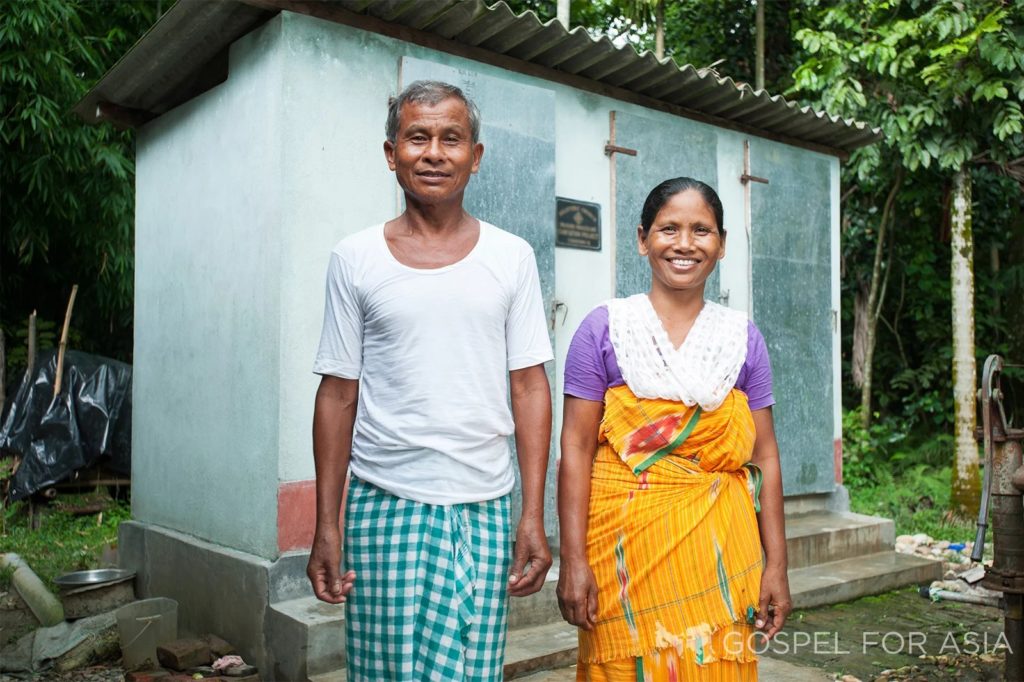toiletNEW DELHI – The widespread practice of open defecation in the developing countries in Asia and Africa has long been a focus of Missions Box News, numerous FBOs, NGOs, and the United Nations. The UN’s Sustainable Development Goals (SDG) for 2030 include bringing the entire world to that status of being Open Defecation Free (ODF).
During September 2018, we published an article entitled, “Counting Toilets: Confusing Tasks with Completed Goals,” in which we proposed that counting the number of toilets within a designated population zone is not an accurate indicator of ODF status.
“The Accountability India study agreed that major paradigm shifts must be pursued in order to reach the objective goal of bringing the entire country to a valid declaration of being ODF. Recommendations of the study include:
- Enlisting local gram panchayats to play a central role in planning and implementation. That means public health training both prior and subsequent to installation.
- Focusing on sustainable use and maintenance. Failure to do so will result in unsanitary facilities that no one will want to use. This includes connecting toilet facilities to systems that remove the feces to local treatment facilities.
- Public hygiene education must be integrated into the project. “Almost none of the households mentioned hygiene as a reason for toilet construction or usage.”
- Implementing an ongoing follow-up system to ensure the usage and sanitary maintenance of private and public facilities and the effectiveness of public health training post declaration of being ODF.”
Addressing a convention on real estate and housing in New Delhi this week, India’s Minister of State for Housing and Urban Affairs agreed that,
“More than the physical construction of toilets, the mindset change that had come about in the last five years was the bigger gain. He said that the ministry was now moving beyond the Open Defecation Free (ODF) targets to ODF+ and ODF ++ rankings.”
The Differences Between ODF, ODF+, and ODF++
The definition of an ODF area adopted under the Swachh Bharat Mission (SBM) was established in 2016 as “A city/ward is declared to be ODF . . . if, at any point of the day, not a single person is found defecating in the open.”
ODF+ and ODF++ raise the bar incrementally to help ensure that all responsible parties have successfully cooperated to rid the country of the practice of open defecation.
ODF+ expands ODF to include a city, a ward, or a work circle where if “at any point of the day, not a single person is found defecating and/or urinating in the open, and all community and public toilets are functional and well-maintained.”
To qualify for ODF+ status,
- Individual toilets must be functional and well-maintained, with water availability.
- All public areas must have functional public toilets within a span of 1 km (still quite a long distance).
- While deciding the number of toilet seats/urinals and blocks, the city’s entire floating population must be considered.
- The city has sufficient mobile toilets/toilet facilities for use during occasions with large gatherings in a single area.
ODF++ contains the additional condition that “fecal sludge/septage and sewage is safely managed and treated, with no discharging and/or dumping of untreated fecal sludge/septage and sewage in drains, water bodies or open areas.”
To qualify for ODF++ status, “All toilets (individual, community, and public) are either connected to
- sewer networks; or
- safe containment systems (such as septic tanks, twin pits or other on-site sanitation systems prescribed under SBM-Urban Mission Guidelines).
The Bottom Line
To receive validation, each city must scientifically treat ALL fecal sludge and sewage before discharge, at least 25 percent of public toilets must be maintained in “excellent condition,” and authorized authorities must attest that there is no open defecation or urination within the city, ward, or other designated area.
The journey to a true, ODF status is a complex, virtual obstacle course of technical, behavioral, and physical issues that have been persistent for decades, if not centuries.
The good news is that countries like India have begun to realize the goal of ODF, recognizing that ODF encompasses more than counting toilets.
Read the following Missions Box News articles to learn more about the issues concerning open defecation:
- Gospel for Asia Spotlights Life-Changing Provision of Basic Facilities on World Toilet Day
- NGOs Combat Lack of Toilets and Sanitation Facilities in Asia
- Special Report Spotlights Health Crisis Solution That Demonstrates God’s Love
- India Moves Toward Sustainable ODF
- Gospel for Asia Partners Create Awareness on World Toilet Day
- Saving Lives at Risk from Open Defecation Using Outdoor Toilets to Improve Sanitation
Sources:
- SuSanA (Sustainable Sanitation Alliance), ODF+, ODF++ and Sustainability of Sanitation – Thematic Discussion Series Synthesis
- The Week, ‘Housing for All’ to be ready two years ahead of deadline: Minister
- Government of India, Ministry of Housing and Urban Affairs, Swachh Bharat Mission-Urban ODF
- World Water Week, Beyond Toilets: Moving to ODF+ in Indian Cities
Image Source:
- Gospel for Asia, Photo of the Day
For more information about this, click here.
